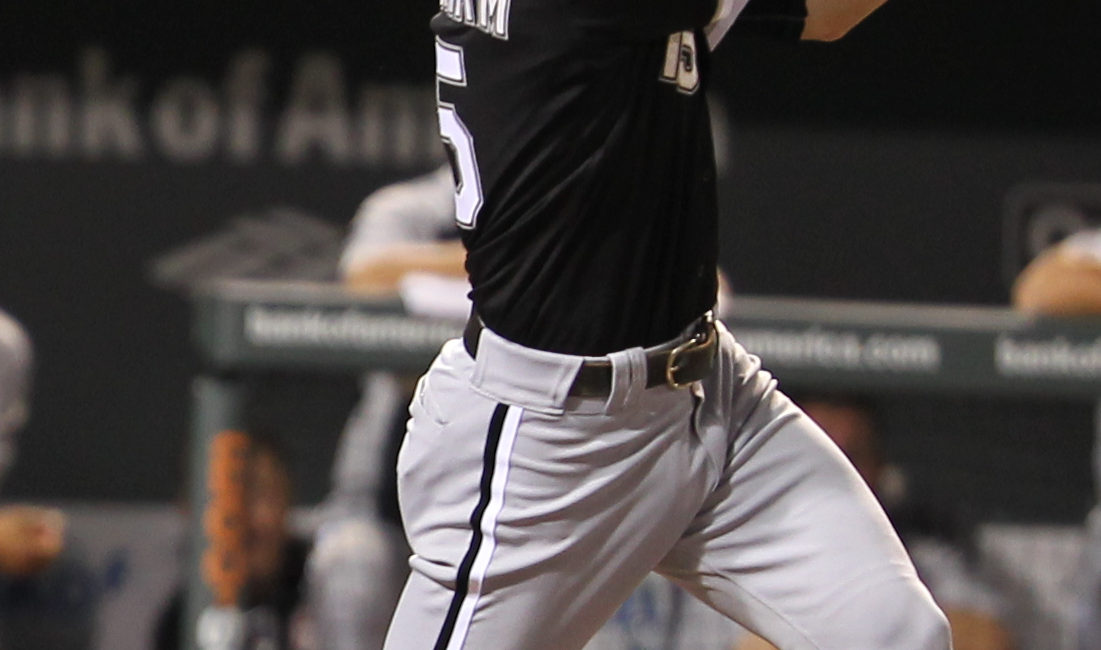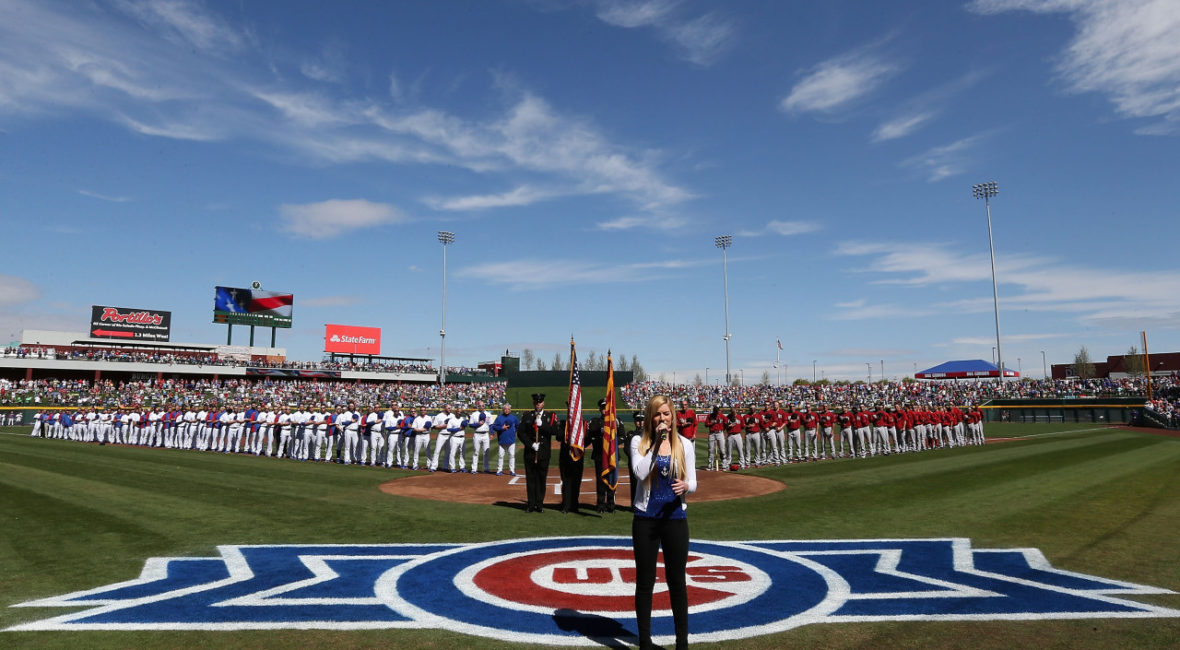MESA, Ariz. (CBS) — The place is beautiful. It is comfortable. It is sensible.
The place will definitely be profitable, especially when you consider that the people of Mesa have handled the small matter of the bill.
You’ve heard that Cubs Park in Mesa is a mini-Wrigley. You know the dimensions are the same, with desert air accommodated by additional footage to the outfield walls. But had you noticed the exact color match of the seats, the exact bleacher-esque slope on the outfield lawn or the approximated rooftops across what would be Waveland Avenue?
Yes, even those obstructing enemies are an admitted part of a scene worth replicating. You didn’t see a makeshift courtroom or a Tom Tunney imposter, but you imagined them, along with a functioning fire house and an imported strain of pig-sized rats.
The place feels more like a big league ballpark than any spring complex you’ve ever been in. Especially late, when 12,000 people cheer on a late-inning rally.
You know they need to fix the real deal in Lake View. But this here makes you believe that they’ll know how to do it right if they ever start.
You leave the stadium in Mesa to walk across the long dirt path towards the offices and training complex. Players make their way past you for the ballgame, and a few autograph seekers line the path. You realize the possibilities. You know how the Green Bay Packers’ players ride young fans’ bicycles from their locker room to the practice field every August at Lambeau, and you see some future variant with Cubs players mingling on March pregame treks.
Speaking of football, you listen to the baseball boss bemoan the lack of a “meeting culture” in baseball and hear how he strove to be able to address his organization “like Belichik.” And then he shows you the lecture hall, with a giant video screen, a kickass sound system and seats for every camp attendee. You see one angle of how he hopes to instill the “Cubs Way.” Later in the day, you talk to a high-ranking executive of another team, and see how jealous he is. His players are given handouts in a cafeteria.
You see the two-floor, open-space weight room with the championship banners hanging from the ceiling, and you remember the embarrassed tone with which the baseball boss pointed out how ancient those titles are. But the room reeks of aspiration. Wrigley is painted on the wall. The big league goal is clear.
And then you consider the placement of that weight room. It bridges a gap between the minor league clubhouse and the big league lockers. Eighteen-year-olds are encouraged to work out with 28-year-olds, to find their mentor and follow him around.
Nothing in this building is designed or placed without conscious forethought. Like nearly all things under the baseball boss, you realize that even if the plan doesn’t work, you can’t help but see the wisdom in the efforts.
Back at the ballpark, you walked the full length of the press box/suite level and came across an expansive deck on both sides. On this day, you see four or five different vibrant private parties. There are banks and corporations plying their employees or clients with beer, hot dogs and desert Cubdom. This is profit in action, or valuable trade/payoff for corporate partners.
And the sightlines were, as in every spot you stood, perfect.
You’ve had quite a day. You worked from a radio booth and toured the joint. Then you took your seats behind the plate.
You watched a hodgepodge of usable veterans, failed prospects and reclamation projects start the game. But you stuck around for the later innings, when a bevy of young talents gave you a one-game sample of their efforts.
You saw Josh Vitters get picked off. You chuckled. You saw Kris Bryant strike out. You jokingly wrote him off. Then you saw Albert Almora line a go-ahead RBI single, Jorge Soler not get out of the box at full speed on a well played groundout and Mike Olt see a pitch well enough to blast a two-run homer.
You were in a version of the future for an inning or two. It was compelling. Your seatmate said it was his favorite Cubs inning in three years.
Earlier, the baseball boss shook his head when asked about hustling one of his prize young players to the big leagues. The fans want a cookie, he is told. Javier Baez is briefly pictured as a snickerdoodle. The boss groans with polite exasperation and takes the metaphor further.
“I’m shaking my head at the notion that we should make baseball decisions based on the notion that we should give our fans cookies,” Cubs president Theo Epstein said. “We’re cooking the whole meal. We want to give them an annual feast. The only way to make fans happy is to give them pennant races and October baseball on an annual basis.
“Nothing is going to get in the way of that — not giving them a headline in November or December so we can get people off our backs for a few weeks, not promoting a kid before he’s ready so we can show off our shiny new toy.
‘We’re building something that’s going to be really special. We have to be patient to get there, and we’re asking a lot of our fans. But the reason we feel OK asking our fans to be patient is because we know what we’re building toward is going to be great.”
You later take stock of this rarity in the business. It’s not just a relentless stay on message. It’s a relentless stay on mission. The organization will do nothing to break from their vision.
Baez will only be deemed ready for second base in the big leagues if he passes some tests at Triple-A. Can he make the pivot on the double play? Does he know how to back up a grounder to first? He will not be deemed ready because Darwin Barney is traded or because they decide to just find a place for his bat.
This is what happens when a very smart and successful man is given free reign to do as he sees fit, is enabled to fight off inevitable intrusions of the business side and is allowed to slowly plot toward what he hopes is a decade of excellence.
It really doesn’t happen often in sports.
You mark this moment, at this new place, and wonder how it will read in your memory years from now.
Listen to Matt Spiegel on 670 The Score weekdays from 9 a.m.–1 p.m. CT on The McNeil & Spiegel Show. Follow him on Twitter @MattSpiegel670.




